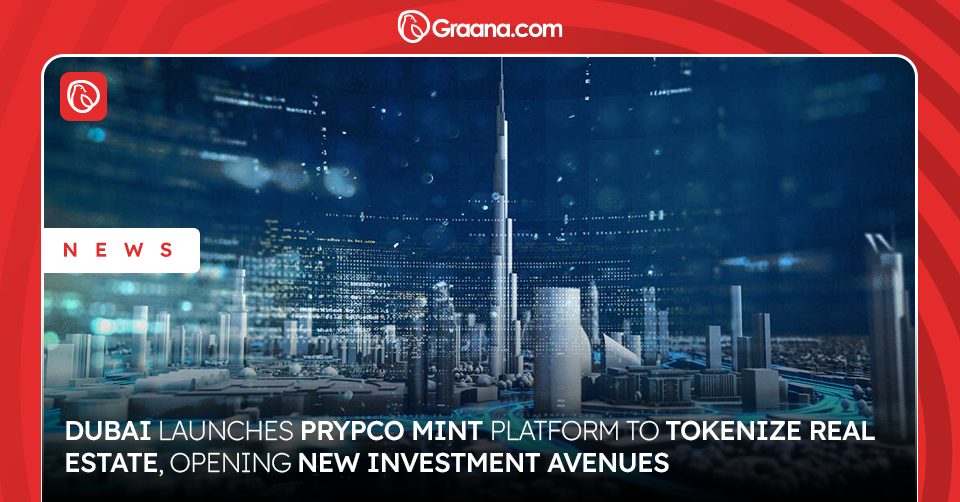
Source: Graana.com
DUBAI – The Dubai government has introduced a groundbreaking real estate initiative through the launch of Prypco Mint, a digital platform enabling the tokenization of property assets. This innovation allows investors to purchase fractional ownership in Dubai real estate, with investments starting from AED 2,000 (approximately $540), and is expected to transform how property is bought, sold, and taxed in the UAE.
Launched in May by the Dubai Land Department, Prypco Mint is part of a broader, government-backed effort to digitize as much as $16 billion in real estate transactions by 2033—an estimated 7% of Dubai’s total property market.
Tokenization involves using blockchain technology to record and facilitate ownership of real-world assets like real estate, sports clubs, and mines. Analysts at McKinsey & Company, Roland Berger, and Agile Dynamics project that the tokenized asset market could grow into a multi-trillion-dollar global industry in the coming years.
During its initial rollout, Prypco Mint supports transactions in UAE dirhams and is limited to UAE ID holders, though there are plans to open the platform to global investors in the near future. The technical infrastructure is provided by Ctrl Alt, which uses the XRP blockchain to host digital versions of property title deeds. The system is directly integrated with the Dubai government’s databases to ensure alignment between blockchain records and official ledgers.
With the rise of tokenized property ownership, taxation and regulatory frameworks are also being re-evaluated. According to Vlad Skibunov, Partner at Dhruva Consultants, understanding VAT implications will be critical for both investors and developers.
The tax treatment will depend on whether the property tokens are legally defined as traditional real estate interests or as virtual assets under UAE law. If categorized as virtual assets, token issuance and trading may fall under financial services VAT rules—potentially qualifying for exemption or zero-rating. Conversely, if treated as traditional property, commercial properties would be subject to 5% VAT, while residential units would remain exempt.
Rental income distributions and platform service fees must also be assessed within this context to determine whether they fall under real estate or financial services regulations.
Skibunov stressed that the complexity of VAT compliance in tokenized structures requires detailed planning. “Buyers and developers must factor VAT liabilities into their strategies early to avoid unforeseen expenses and ensure regulatory compliance,” he said.
He added that as UAE businesses continue to embrace emerging technologies, clear legal guidance and proactive engagement with regulators will be essential to fully unlock the potential of tokenized real estate and maintain compliance.
The Prypco Mint initiative represents a bold step toward modernizing Dubai’s property market, with significant implications for investment accessibility, financial transparency, and global investor participation.
Islamabad: The Monetary Policy Committee of the State Bank of Pakistan on Monday reduced the…
Islamabad: The Capital Development Authority has completed the main structure of the T-Chowk Flyover in…
Here is a concise and professional rephrased version of the news: Saudi Arabia’s real estate…
Islamabad: The Federal Board of Revenue has updated property valuation rates across 68 locations in…
Dubai’s residential real estate market maintained its upward momentum in November 2025, with the latest…
Saudi Arabia’s Real Estate General Authority (REGA) has announced the launch of a new platform…